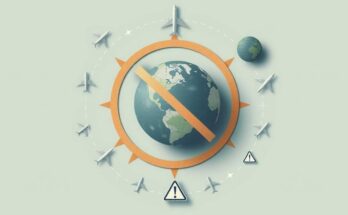The UN Security Council has condemned the RSF’s establishment of a parallel government in Sudan, citing ongoing violence and emerging humanitarian crises. Officials warned that such actions risk further fragmentation of the nation. Urgent calls for unity and a ceasefire have been made amid concerns over foreign involvement and escalating conflicts.
The United Nations Security Council condemned the formation of a parallel government in Sudan established by the Rapid Support Forces (RSF) and allied groups. A UN envoy remarked that continued violence has transformed Sudan into a ‘hellscape’, sparking grave concern among the 15 council members gathered in New York on February 26. They expressed urgent worries regarding the ongoing conflicts and the implications of the RSF’s intentions to govern areas under their control.
The RSF, led by Mohamed Hamdan Daglo, commonly referred to as Hemeti, dominates most of Darfur and parts of southern Sudan. Their coalition with the Sudan People’s Liberation Movement-North (SPLM-N), led by Abdelaziz al-Hilu, fortifies their authority over southern regions and provides strategic access to borders with neighboring nations, including Libya, Chad, and South Sudan. Council members voiced their apprehensions about potential fragmentation within Sudan as a result of this alliance.
John Kelley, the US representative, cautioned that the RSF’s efforts to establish governance in its territories could lead to a de facto partitioning of the nation. Similarly, British Ambassador Barbara Woodward stressed that increased divisions may further destabilize both Sudan and the surrounding region. Chinese Ambassador Fu Cong echoed this sentiment by warning that the RSF charter heightens the risk of Sudan’s fragmentation.
Reactions from council members revealed a shared concern over the contradiction between the RSF’s proclaimed objectives of forming a peaceful government and its current actions. Algeria’s envoy labeled the developments as ‘a dangerous step’, while French representatives called for a ceasefire throughout Sudan during the Ramadan period. The urgency of preserving Sudan’s unity and territorial integrity was emphasized following the RSF’s recent charter signing in Nairobi.
The Sudanese government responded with accusations against Kenya for allegedly supporting the RSF, recalling its ambassador from Nairobi. Additionally, the United Arab Emirates has faced accusations of supplying weapons to the RSF, although the UAE has denied these allegations. On January 14, Kenya and the UAE signed an economic agreement, marking their first pact of this nature.
The UN has projected a need for $6 billion to aid nearly 21 million individuals in Sudan and an additional five million in neighboring countries. Edem Wosornu from OCHA highlighted that the already dire situation has deteriorated further, particularly in North Darfur, where fighting recently compelled the World Food Programme to suspend food assistance in the Zamzam displacement camp, impacting approximately half a million people.
The UN Security Council’s condemnation of the RSF’s parallel government in Sudan underscores the ongoing crisis. The council highlighted the potential fragmentation of the nation and the worsening humanitarian situation. Calls for unity and a ceasefire during Ramadan reflect the urgency of addressing the conflict, while foreign influence complicates the geopolitical landscape.
Original Source: www.rfi.fr




